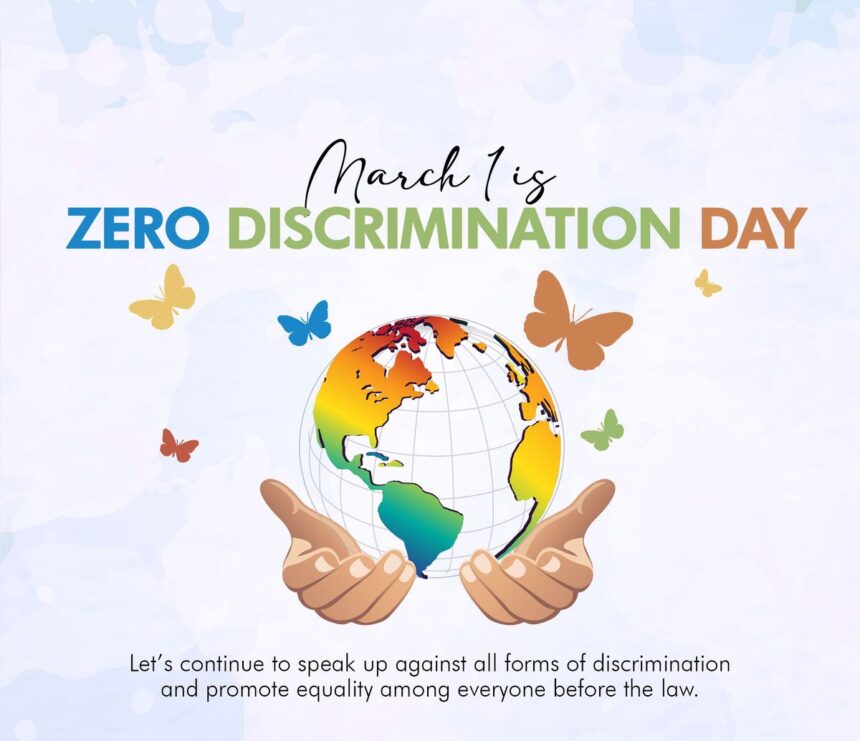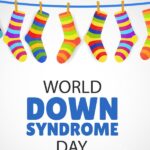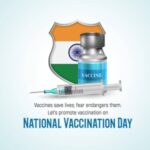🌈 Zero Discrimination Day: Uniting Humanity Beyond Barriers
In a world increasingly defined by divisions — of race, gender, religion, caste, ability, and socioeconomic status — Zero Discrimination Day serves as a bold global reminder that everyone matters, and everyone deserves respect, dignity, and opportunity.
- 🌈 Zero Discrimination Day: Uniting Humanity Beyond Barriers
- 📚 History of Zero Discrimination Day
- 📆 Timeline of Key Moments
- 🌟 7 Powerful Facts About Zero Discrimination Day
- ❓ Frequently Asked Questions (FAQs)
- Q1: What is Zero Discrimination Day?
- Q2: Why is it observed on March 1st?
- Q3: Who started Zero Discrimination Day?
- Q4: Who can participate?
- Q5: What’s the goal of this observance?
- 🔍 Significance of Zero Discrimination Day
- 💔 Shining a Light on Invisible Pain
- 🗣️ Elevating Marginalized Voices
- ⚖️ Advocating for Legal Reform
- 🌎 Aligning with Global Goals
- 🎉 How the World Observes Zero Discrimination Day
- 💌 Wishing Messages and Quotes
- 🧠 Key Takeaways to Remember
- 👨👩👧 Impact on Our Daily Lives
- 🧩 Importance in Life and Society
- 🔚 Conclusion: Towards a Fairer, Kinder World
Celebrated every year on March 1st, this day is more than just an awareness campaign. It’s a call to action, urging individuals, communities, and governments to break down walls of inequality and build bridges of inclusion.
Let’s dive deep into the history, facts, significance, and how Zero Discrimination Day impacts our everyday lives.
📚 History of Zero Discrimination Day
Launched by UNAIDS (United Nations Programme on HIV/AIDS), Zero Discrimination Day was first celebrated on March 1, 2014.
The day builds on the UN’s commitment to ending discrimination in all forms, especially as it affects people living with HIV/AIDS.
The iconic butterfly symbol was introduced as a global representation of transformation, hope, and positive change.
Since then, the day has expanded beyond the health sector to address discrimination based on gender, disability, ethnicity, sexual orientation, religion, age, and more.
It ties directly into UN Sustainable Development Goals (SDGs), especially Goal 10: Reduce Inequality Within and Among Countries.
📆 Timeline of Key Moments
| Year | Milestone |
|---|---|
| 2014 | First Zero Discrimination Day celebrated globally |
| 2015 | Campaigns expand to focus on legal reform and workplace discrimination |
| 2017 | Emphasis placed on health equity and education rights |
| 2019 | Campaign theme: “Act to Change Laws That Discriminate” |
| 2022 | Focus on removing systemic inequalities affecting youth and marginalized groups |
| 2024 | Introduced intersectional approaches—combating multi-layered discrimination |
🌟 7 Powerful Facts About Zero Discrimination Day
🦋 The butterfly is the global symbol of Zero Discrimination, signifying transformation and freedom.
🌐 Over 90 countries actively organize campaigns, marches, and educational drives on March 1st.
⚖️ More than 60 countries still have laws that criminalize same-sex relationships, despite global advocacy.
🏥 Discrimination in healthcare leads to millions not receiving timely care, especially in HIV treatment.
📚 Girls in 1 in 5 developing countries still face discriminatory barriers to basic education.
👩🦽 People with disabilities are 3 times more likely to face employment discrimination.
🧑🏿🤝🧑🏻 Discrimination costs the global economy trillions through reduced productivity, education gaps, and increased healthcare costs.
❓ Frequently Asked Questions (FAQs)
Q1: What is Zero Discrimination Day?
It’s a global observance that promotes equality, inclusion, and human rights, focusing on eliminating discrimination in all its forms.
Q2: Why is it observed on March 1st?
UNAIDS chose March 1 as a symbolic starting point for a year-long commitment to ending stigma, especially for marginalized groups.
Q3: Who started Zero Discrimination Day?
The Joint United Nations Programme on HIV/AIDS (UNAIDS) initiated the day in 2014.
Q4: Who can participate?
Anyone—governments, organizations, schools, businesses, and individuals.
Q5: What’s the goal of this observance?
To create a fairer world, where individuals aren’t judged or excluded due to their identity, appearance, beliefs, or status.
🔍 Significance of Zero Discrimination Day
💔 Shining a Light on Invisible Pain
Many forms of discrimination—such as mental health stigma, ableism, and gender bias—remain unspoken and unchallenged. This day brings those issues into the open.
🗣️ Elevating Marginalized Voices
Whether it’s a transgender student, a refugee mother, or someone living with HIV—this day provides a platform for those too often silenced.
⚖️ Advocating for Legal Reform
Zero Discrimination Day has sparked petitions, legal debates, and policy shifts in over 30 nations, addressing workplace rights, healthcare access, and more.
🌎 Aligning with Global Goals
It supports the United Nations’ Agenda 2030, including rights to quality education, gender equality, decent work, and justice for all.
🎉 How the World Observes Zero Discrimination Day
📢 Public Campaigns
UN bodies, NGOs, and activists launch powerful storytelling and advocacy campaigns, often featuring real stories of those affected.
🧑🏫 School Programs
Educators hold anti-bullying sessions, inclusivity workshops, and cultural appreciation days.
🧑⚖️ Legal Advocacy
Legal organizations host panels and push for legislative change regarding gender identity, disability rights, and racial justice.
🎭 Cultural Events
Theatres, music fests, and film screenings help spread the message creatively.
💻 Online Engagement
Social media is flooded with hashtags like #ZeroDiscriminationDay, #ActForEquality, and #DiscriminationEndsWithMe.
💌 Wishing Messages and Quotes
“Discrimination is a choice. So is kindness. Choose wisely. Happy Zero Discrimination Day!”
“Your identity is not a limitation. It’s your power. Celebrate who you are.”
“A world with zero discrimination is a world with infinite potential.”
“Equal rights aren’t optional. They’re human.”
“On Zero Discrimination Day, let’s pledge to stand with, not just for, each other.”
🧠 Key Takeaways to Remember
Discrimination can be direct (laws, behaviors) or indirect (bias, stereotypes).
Fighting discrimination isn’t just moral—it’s economically, socially, and mentally beneficial for all.
Intersectionality matters. Some people face multiple layers of discrimination (e.g., a disabled Black woman).
You don’t need power to make change—you just need awareness and action.
👨👩👧 Impact on Our Daily Lives
At Work
Many face wage gaps, hiring bias, or workplace exclusion based on gender, race, or disability. This day encourages fairer HR practices and diversity hiring.
In Schools
Zero Discrimination Day drives inclusive curriculum, anti-bullying policies, and equal access to resources.
In Healthcare
Raising awareness reduces stigma for people with HIV/AIDS, disabilities, or mental health conditions—ensuring better access to care.
In Society
A community that accepts everyone—regardless of caste, gender, or religion—thrives in peace, creativity, and mutual respect.
🧩 Importance in Life and Society
Promotes mental well-being by reducing prejudice-induced trauma.
Builds a cohesive and empathetic society.
Strengthens social justice frameworks and boosts civic engagement.
Improves global cooperation in tackling issues like poverty, racism, and violence.
Fosters safe spaces where people feel seen, heard, and valued.
🔚 Conclusion: Towards a Fairer, Kinder World
Zero Discrimination Day is more than a date. It’s a moral compass, guiding humanity to respect differences, challenge bias, and fight injustice.
Whether it’s a small act of kindness or large-scale policy reform, every step toward zero discrimination is a step toward a world of hope, fairness, and peace.
Let’s not wait for March 1st. Let’s make every day a Zero Discrimination Day.








